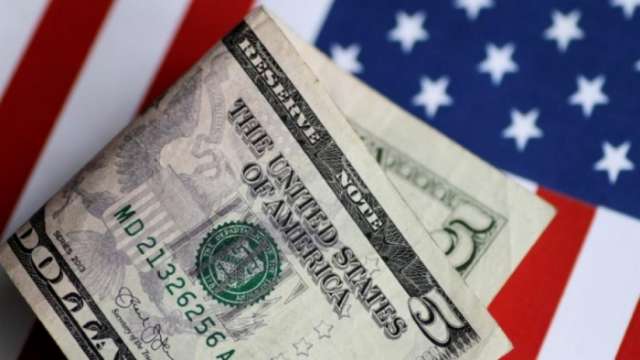by Kenneth Rogoff
Today, it seems to be an article of faith among US policymakers and many economists that the world’s appetite for dollar debt is virtually insatiable. But a modernization of China’s exchange-rate arrangements could deal the dollar’s status a painful blow.
The mighty US dollar continues to reign supreme in global markets. But the greenback’s dominance may well be more fragile than it appears, because expected future changes in China’s exchange-rate regime are likely to trigger a significant shift in the international monetary order.
Bold, specific, and usually alarming predictions about automation and coming job losses obscure a basic fact: the future remains uncertain. Whether technology is used to liberate or enslave us is always ultimately the responsibility of the humans in charge.
For many reasons, the Chinese authorities will probably someday stop pegging the renminbi to a basket of currencies, and shift to a modern inflation-targeting regime under which they allow the exchange rate to fluctuate much more freely, especially against the dollar. When that happens, expect most of Asia to follow China. In due time, the dollar, currently the anchor currency for roughly two-thirds of world GDP, could lose nearly half its weight.
Considering how much the United States relies on the dollar’s special status – or what then-French Finance Minister Valéry Giscard d’Estaing famously called America’s “exorbitant privilege” – to fund massive public and private borrowing, the impact of such a shift could be significant. Given that the US has been aggressively using deficit financing to combat the economic ravages of COVID-19, the sustainability of its debt might be called into question.
The long-standing argument for a more flexible Chinese currency is that China is simply too big to let its economy dance to the US Federal Reserve’s tune, even if Chinese capital controls provide some measure of insulation. China’s GDP (measured at international prices) surpassed that of the US back in 2014 and is still growing far faster than the US and Europe, making the case for greater exchange-rate flexibility increasingly compelling.
A more recent argument is that the dollar’s centrality gives the US government too much access to global transactions information. This is also a major concern in Europe. In principle, dollar transactions could be cleared anywhere in the world, but US banks and clearing houses have a significant natural advantage, because they can be implicitly (or explicitly) backed by the Fed, which has unlimited capacity to issue currency in a crisis. In comparison, any dollar clearing house outside the US will always be more subject to crises of confidence – a problem with which even the eurozone has struggled.
Moreover, former US President Donald Trump’s policies to check China’s trade dominance are not going away anytime soon. This is one of the few issues on which Democrats and Republicans broadly agree, and there is little question that trade deglobalization undermines the dollar.
Chinese policymakers face many obstacles in trying to break away from the current renminbi peg. But, in characteristic style, they have slowly been laying the groundwork on many fronts. China has been gradually allowing foreign institutional investors to buy renminbi bonds, and in 2016, the International Monetary Fund added the renminbi to the basket of major currencies that determines the value of Special Drawing Rights (the IMF’s global reserve asset).
In addition, the People’s Bank of China is far ahead of other major central banks in developing a central-bank digital currency. Although currently purely for domestic use, the PBOC’s digital currency ultimately will facilitate the renminbi’s international use, especially in countries that gravitate toward China’s eventual currency bloc. This will give the Chinese government a window into digital renminbi users’ transactions, just as the current system gives the US a great deal of similar information.
Will other Asian countries indeed follow China? The US will certainly push hard to keep as many economies as possible orbiting around the dollar, but it will be an uphill battle. Just as the US eclipsed Britain at the end of the nineteenth century as the world’s largest trading country, China long ago surpassed America by the same measure.
True, Japan and India may go their own way. But if China makes the renminbi more flexible, they will likely at the very least give the currency a weight comparable to that of the dollar in their foreign-exchange reserves.
There are striking parallels between Asia’s close alignment with the dollar today and the situation in Europe in the 1960s and early 1970s. But that era ended with high inflation and the collapse of the post-war Bretton Woods system of fixed exchange rates. Most of Europe then recognized that intra-European trade was more important than trade with the US. This led to the emergence of a Deutsche Mark bloc that decades later morphed into the single currency, the euro.
This does not mean that the Chinese renminbi will become the global currency overnight. Transitions from one dominant currency to another can take a long time. During the two decades between World Wars I and II, for example, the new entrant, the dollar, had roughly the same weight in central-bank reserves as the British pound, which had been the dominant global currency for more than a century following the Napoleonic Wars in the early 1800s.
Sign up for our weekly newsletter, PS on Sunday
[email protected]
So, what is wrong with three world currencies – the euro, the renminbi, and the dollar – sharing the spotlight? Nothing, except that neither markets nor policymakers seem remotely prepared for such a transition. US government borrowing rates would almost certainly be affected, though the really big impact might fall on corporate borrowers, especially small and medium-size firms.
Today, it seems to be an article of faith among US policymakers and many economists that the world’s appetite for dollar debt is virtually insatiable. But a modernization of China’s exchange-rate arrangements could deal the dollar’s status a painful blow.
Kenneth Rogoff, Professor of Economics and Public Policy at Harvard University and recipient of the 2011 Deutsche Bank Prize in Financial Economics, was the chief economist of the International Monetary Fund from 2001 to 2003. He is co-author of This Time is Different: Eight Centuries of Financial Folly and author of The Curse of Cash.
Read the original article on project-syndicate.org.
More about:
















































